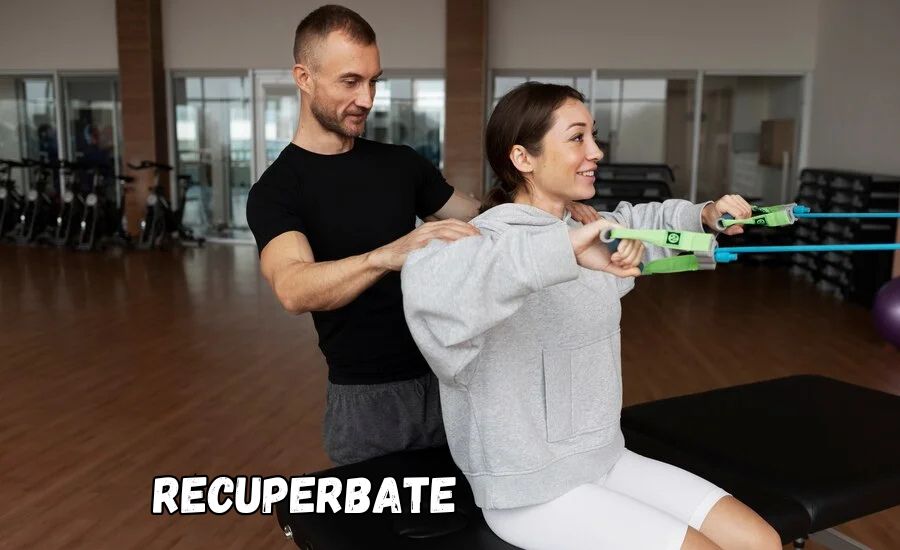In our busy world, taking time to rest and recharge is often neglected. But what if the secret to feeling healthier, happier, and more energetic lies in understanding a simple concept—recuperbate? Recuperbate is more than just rest; it’s an approach to balanced recovery that focuses on the physical, mental, and emotional aspects of your life.
In this guide, we will dive deep into what recuperbate means, why it’s essential in today’s fast-paced society, and how you can incorporate it into your routine for a healthier, more sustainable lifestyle. If you’ve ever felt tired, stressed, or in need of a reset, this guide is for you!
What Does Recuperbate Mean?
Recuperbate combines the concepts of “recuperate” and “reinvigorate” to describe a holistic recovery process that helps you regain energy, clarity, and emotional balance. Unlike simple rest, recuperbate emphasizes active and intentional recovery for your body and mind.
Why is Recuperbate Important?
Our bodies and minds are not built to run at full speed all the time. Without proper recovery, we risk exhaustion, burnout, and long-term health problems. Recuperbate allows you to step back and focus on healing from the inside out.
Key Benefits of Recuperbate
- Physical Recovery: Helps in repairing muscles, reducing fatigue, and preventing injuries.
- Mental Recovery: Improves focus, reduces stress, and enhances emotional resilience.
- Emotional Recovery: Provides space to process emotions, reduce anxiety, and build resilience.
The Science Behind Recuperbate

How the Body Recovers
When you work hard or exercise, your muscles experience tiny tears. If you don’t give your muscles time to rest, they can’t heal properly. Recuperbate helps them rebuild stronger, so you can avoid injuries and keep getting better at what you do.
Mental and Emotional Recovery
Your brain also needs a break. Working non-stop can lead to stress and tiredness. Recuperbate means taking moments to pause, rest, and focus on positive activities. Studies show that this kind of break can help you feel happier and more relaxed.
How to Recuperbate Effectively
Let’s break down practical steps to help you incorporate recuperbate into your daily routine:
1. Prioritize Quality Sleep
Sleep is one of the most critical elements in recovery. Aim for 7-9 hours of restful sleep each night. While you sleep, your body repairs muscles, clears waste products from the brain, and recharges for the next day.
Tips for Better Sleep:
- Establish a regular sleep routine by going to bed at the same time each night.
- Avoid screens before bed, as the blue light can interfere with your sleep hormone, melatonin.
- Create a calm environment—keep your room dark, quiet, and cool.
2. Incorporate Active Recovery
Active recovery includes low-intensity activities like walking, yoga, or gentle stretching. These activities help your muscles recover without putting extra strain on them. Incorporate at least 20-30 minutes of light movement each day to keep your blood flowing.
Benefits of Active Recovery:
- Promotes blood flow and nutrient delivery to muscles.
- Reduces muscle soreness and stiffness.
- Boosts mental relaxation through mindful movement.
3. Practice Mindfulness and Meditation
Mental recovery is just as important as physical recovery. Take time each day for quiet reflection, deep breathing, or meditation. This can help reduce stress and anxiety while promoting emotional well-being.
How to Practice Mindfulness:
- Meditate for 5-10 minutes daily: Focus on your breathing or listen to calming music.
- Gratitude journaling: Write down a few things you’re grateful for each day. This helps shift your focus from stress to positivity.
- Simple breathing exercises: Inhale deeply for 4 seconds, hold for 4 seconds, and exhale for 4 seconds. Repeat until you feel relaxed.
4. Eat a Balanced Diet
Nutrition plays a huge role in recovery. Make sure to eat enough proteins, healthy fats, and carbohydrates to fuel your body. Proper hydration is key as well.
Foods That Support Recuperbate:
- Lean proteins: Chicken, fish, eggs, and plant-based proteins like beans and lentils help build and repair muscles.
- Carbohydrates: Whole grains, fruits, and veggies provide energy for your body and brain.
- Healthy fats: Avocado, nuts, and olive oil help fight inflammation and support brain health.
5. Stay Hydrated
Drink at least eight glasses of water each day. Water keeps your body functioning correctly, aids digestion, and helps transport nutrients.
Quick Tip: Carry a water bottle with you so you remember to sip throughout the day.
6. Manage Stress Effectively
Stress can make your body feel tired and run down. Learning how to deal with stress is key to feeling better. Here are some easy ways to lower stress levels:
- Spend time in nature: A simple walk outside can help calm your mind.
- Practice deep breathing: Slow, deep breaths can lower your heart rate and help you relax.
- Engage in hobbies: Do things you love like painting, gardening, or listening to music.
The Role of Community in Recuperbate
Connecting with others can help you feel supported and understood. Whether you join a yoga class, attend a wellness seminar, or simply chat with friends, community connections offer valuable benefits.
How to Find Support:
- Join local classes: Look for wellness or fitness groups in your area.
- Online communities: Social media platforms have groups focused on wellness and recovery.
- Share your experiences: Talking about what you’re going through can help you and others feel connected.
Read Also: health-sciencesforum-com
Building Recuperbate into Your Daily Routine

The key to effective recuperbate is consistency. Here are some ways to add these habits into your routine:
- Set small daily goals: Focus on one thing at a time, like improving your sleep or practicing mindfulness.
- Keep a habit tracker: Use a journal or an app to track your progress.
- Celebrate your wins: Give yourself a reward when you achieve a goal!
Signs You Need to Recuperbate
It’s essential to listen to your body and mind. Here are some signs that you may need to focus more on recovery:
- Physical fatigue: Feeling tired even after a full night’s sleep.
- Mental burnout: Difficulty focusing, irritability, or lack of motivation.
- Increased stress levels: Feeling overwhelmed by daily tasks.
Long-Term Benefits of Recuperbate
Over time, focusing on recuperbate can transform your health and well-being. Here are the lasting benefits:
- More energy: Regular rest and recovery lead to higher energy levels.
- Better focus: Mindfulness and breaks improve your concentration.
- Improved resilience: Emotional recovery helps you deal with stress better.
- Reduced risk of injury: Physical recovery practices lower the risk of getting hurt.
How to Overcome Common Obstacles to Recuperbate
Sometimes, people may feel guilty about taking time to rest, or they might find it hard to fit recovery into their busy schedules. Here are some tips to help you overcome these obstacles:
- Reframe rest as essential: Understand that rest is necessary for long-term health and success.
- Schedule recovery time: Block out time in your day for mindfulness, light exercise, or sleep.
- Set boundaries: Learn to say no to extra responsibilities when you need to recuperate.
Conclusion
Recuperbate isn’t just about resting—it’s about taking charge of your recovery and making it a regular part of your life. By focusing on rest, active recovery, nutrition, and mindfulness, you can feel more energized, focused, and ready for whatever life throws your way.
Start small with one habit, and gradually build up to a full recuperbate routine. Remember, the key is consistency. As you prioritize your well-being, you’ll find that you’re not only healthier but also more resilient, happier, and more fulfilled.
FAQs:
Q: What makes recuperbate different from simple relaxation?
A: Recuperbate is an intentional, structured approach to recovery that goes beyond occasional rest. It includes active and mindful practices to sustain well-being.
Q: Can anyone practice recuperbate, or is it just for athletes?
A: Anyone can benefit from recuperbate! It’s not just for those who exercise—recuperbate is for anyone facing physical, mental, or emotional stress.
Q: How can I incorporate recuperbate into a busy lifestyle?
A: Focus on small, daily actions like taking short breaks, eating well, and practicing mindfulness. Even 5 minutes a day can make a big difference.
Q: Can recuperbate help with stress?
A: Yes! By focusing on both physical and mental recovery, recuperbate helps lower stress and improve resilience.
Get the latest updates and in-depth coverage on today’s hottest topics at: Dallas Insiders
